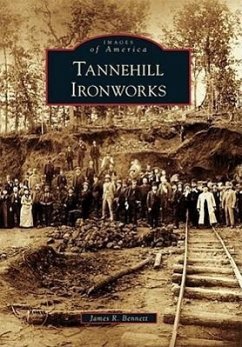When cotton was king and Jackson was president, Daniel Hillman built a bloomery forge on Roupes Creek near the Jefferson and Tuscaloosa County line. As the birthplace of the Birmingham Iron and Steel District, the forge grew into an important battery of three blast furnaces capable of producing 22 tons of iron daily for Confederate munitions. The Tannehill Furnaces--the handiwork of Moses Stroup, one of the South's leading ironmasters--are among the best preserved 19th-century ironworks in America. Along with the Iron and Steel Museum of Alabama, the furnace ruins form the centerpiece of Tannehill Ironworks Historical State Park, which attracts 400,000 visitors annually. It is Alabama's most visited Civil War site.








